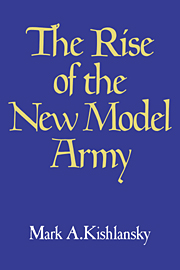Summary
Qui s'excuse, s'accuse – still, a word about method and organization is necessary. Sources for the study of politics in the period preceding the English Revolution are plentiful but perplexing. Besides the efforts of contentious authors to portray only one side of an issue, men who lived through the upheavals of the midcentury spent some of their declining years justifying their own conduct and vilifying that of others. Thus any attempt to provide an account of what happened during the 1640s is fraught with difficulty. I have sought to observe two rules of evidence that may seem unimaginatively rigid, but that I believe have saved me from error: to ignore the assertions of obviously biased informants unless otherwise supported and to prefer contemporary accounts to retrospective ones. In the first instance, I have made little use of Baxter, Edwards, and the religious disputants, of the Clarendon Mss. (a most tempting source), and the ambassadorial intrigues of Sabran and Montreuil. Baillie, on whom I have relied for the Scottish point of view, occasionally falls into the same category. The tendency of these men to polarize and exaggerate the situations they observe should be apparent to any who have attempted to substantiate their accounts. In the second category, I have made sparing use of Clarendon, Whitelocke, Ludlow, Holies, Hutchinson, and other memorialists who, though participants in the events they describe, wrote their recollections through the distorting glass of hindsight.
- Type
- Chapter
- Information
- The Rise of the New Model Army , pp. ix - xiiiPublisher: Cambridge University PressPrint publication year: 1980



